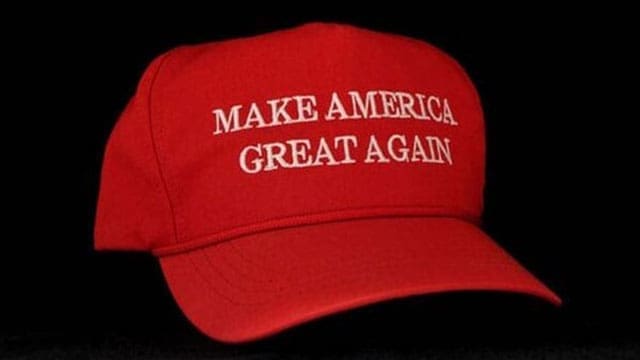His bold plans to reshape America are designed to leave a lasting impact on the nation’s future and secure his place in history

For interview requests, click here
Donald Trump, the 45th president of the United States, became the 47th president on Monday. It’s been called the greatest political comeback in his country’s history and a repudiation of the presidencies of Barack Obama and Joe Biden. His second term appears even more ambitious than his first.
Part of Trump’s remarkable journey back to the White House is tied to another U.S. president. While some may immediately think of Andrew Jackson or Ronald Reagan, it’s actually Grover Cleveland.
Trump’s second presidential term is non-consecutive, only the second time in U.S. history this has happened. Cleveland, as you may have guessed, was the first. He served as the 22nd president from 1885 to 1889 and again as the 24th president from 1893 to 1897.
These two presidents, however, wouldn’t be regarded as two sides of the same political coin.
Cleveland served as the mayor of Buffalo, N.Y., and later as governor of New York before becoming president. He was a fiscally conservative Democrat who opposed tariffs, the use of free silver to inflate the currency, government subsidies, and actions that could lead to inflation.
 |
| Recommended |
| As Trump looms, Canada will be tested as never before
|
| Trump’s tariffs risk repeating the mistakes of the Great Depression
|
| Trump’s tariff threat could shatter Canada’s economy
|
In contrast, Trump, a billionaire businessman and reality TV star, was a political neophyte who had switched party allegiances and briefly considered running in the 2000 U.S. Reform Party presidential primaries. Ultimately, he ran as a Republican, combining elements of conservatism, populism, and economic nationalism—such as supporting tariffs—to build a political movement that captured the imagination of many voters.
Yet, there’s an eye-catching trait both men shared. Cleveland, like Trump, shed a fair amount of political blood in opposing corruption and patronage in Washington. Clevenland’s commitment to clean up the nation’s capital enticed a sizeable number of Republicans, who became known as “Mugwumps,” to vote for him in the 1884 election. Trump’s messaging to drain the swamp resonated with plenty of Democrats and independents from every walk of life in 2016, 2020 and 2024.
It’s fascinating that the only two U.S. presidents with non-consecutive terms, with more political differences than similarities, essentially followed the same playbook to victory.
Rare, especially for Trump, who has never really followed a traditional political playbook. He marches to the beat of his own drum. He tends to lean conservative but isn’t opposed to shifting if the political winds swirl in a different fashion. The guiding framework linked to him, Trumpism, is essentially a catch-all philosophy that encompasses his mishmash of views on politics, economics and culture.
That being said, his second inauguration speech was notably different. It was more ambitious, confident and ideologically driven than anything he has done before.
“The golden age of America begins right now,” he said. “America will soon be greater, stronger, and far more exceptional than ever before. I return to the presidency confident and optimistic that we are at the start of a thrilling new era of national success. A tide of change is sweeping the country, sunlight is pouring over the entire world, and America has the chance to seize this opportunity like never before.”
This will be accomplished through a series of “historic executive orders.” Here’s a small sampling.
Trump will declare a “national emergency at our southern border.” He will “end the practice of catch and release,” designate “cartels as foreign terrorist organizations,” and invoke “the Alien Enemies Act of 1798.” He plans to “declare a national energy emergency,” “end the Green New Deal and … revoke the electric vehicle mandate,” and, as he put it, “we will drill, baby, drill.”
There will also be an “overhaul of our trade system” with tariffs and taxes on foreign countries “to enrich our citizens.” He’ll introduce an “External Revenue Service to collect all tariffs, duties and revenues.” He wants to “immediately stop all government censorship and bring back free speech to America,” “forge a society that is colourblind and merit-based,” and make it official U.S. policy that there are “only two genders, male and female.”
There’s even more. “A short time from now, we are going to be changing the name of the Gulf of Mexico to the Gulf of America,” he said. His administration will also “restore the name of a great president, William McKinley, to Mount McKinley, where it should be and where it belongs.”
Most of Trump’s executive orders will get through without too much hassle. A few will likely be challenged in the courts, like during his first term. Given that he has a solid political mandate and Republican control of the House of Representatives (albeit razor-thin) and Senate, he’ll feel emboldened to keep moving forward. Plus, he’s no longer the neophyte he once was and can manoeuvre the political waters better than before.
“A cause worth fighting for is worth fighting for to the end,” Cleveland once said. Trump would likely agree. If most of his ideas and policies in his second term are accomplished, that would solidify his political legacy when he leaves the White House for the second and final time.
That’s a cause worth fighting for.
Michael Taube is a political commentator, Troy Media syndicated columnist and former speechwriter for Prime Minister Stephen Harper. He holds a master’s degree in comparative politics from the London School of Economics, lending academic rigour to his political insights.
Explore more on Donald Trump, Trump administration, U.S. politics
Troy Media is committed to empowering Canadian community news outlets by providing independent, insightful analysis and commentary. Our mission is to support local media in building an informed and engaged public by delivering reliable content that strengthens community connections, enriches national conversations, and helps Canadians learn from and understand each other better.
